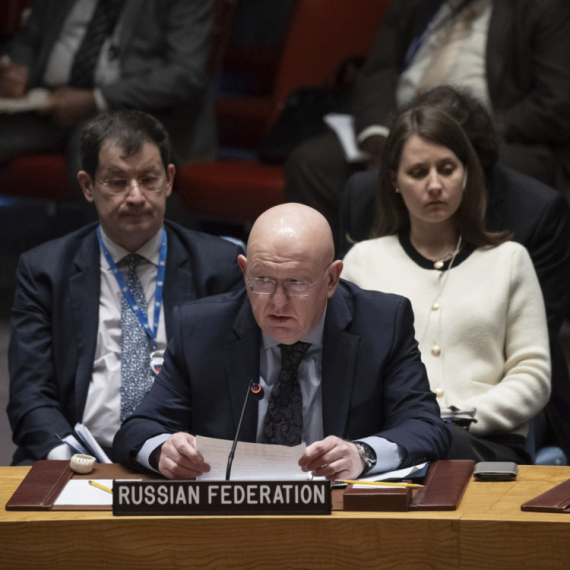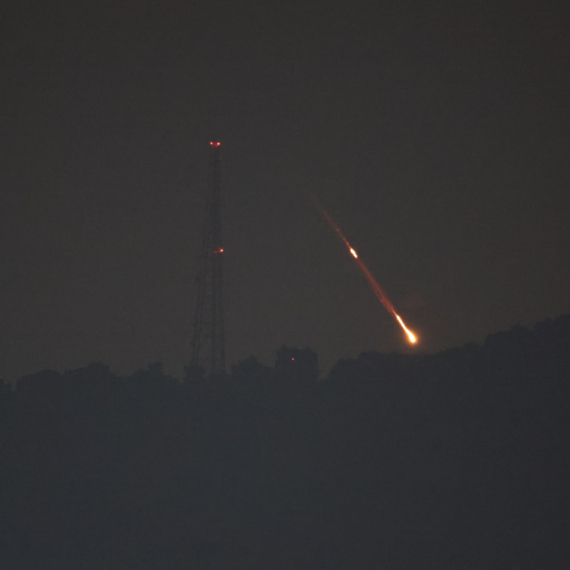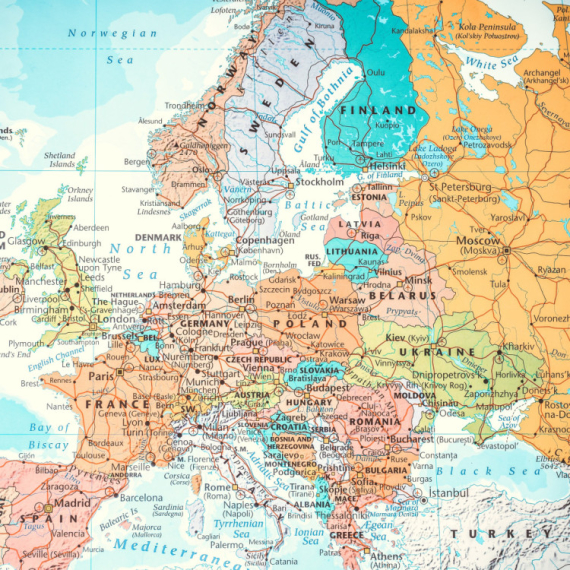Troika considers introducing new text
Wolfgang Ischinger may propose a solution for Kosovo’s status based on a 1972 agreement between West and East Germany.
Friday, 26.10.2007.
11:41

Wolfgang Ischinger may propose a solution for Kosovo’s status based on a 1972 agreement between West and East Germany. Tanjug understands from diplomatic sources that the idea of the European Union (EU) representative to the Contact Group mediating Troika is that a similar model could serve as a solution for the Kosovo situation. Troika considers introducing new text According to the sources, it is based on the belief that a solution can be found to conflicts where positions are irreconcilable by not mentioning what appears unsolvable. In an attempt to break the deadlock in the negotiating process, Ischinger has turned to his own country’s history. The problem with Ischinger's historic example, according to the diplomats, is the fact that it is an inadequate comparison, since the case of Germany involved two separate states that were seeking ways to promote their coexistence, while with Kosovo quite the opposite is true - one entity is trying to break way from the other using force. Ischinger did not put forward as a possible example the tearing down of the Berlin Wall and the factual unification of the two parts of his country, but a period almost two decades prior to that, when officials, attempting to normalize relations in 1972, reached an agreement aimed at establishing good neighborly relations between the two German states thus guaranteeing de facto, if not de jure, recognition of East Germany. That is why Ischinger, in promoting the German example of 1972, has obviously been influenced more by Pristina's offer of good-neighborly relations between two independent states, than by Serbia's refusal to have its own state torn apart, the diplomats said. Wolfgang Ischinger (B92, archive) Wolfgang Ischinger says that a compromise is possible for Kosovo, with both sides making serious concessions. “The two sides must realize that they cannot get 100 percent of what they are asking for. They must realize that, if they get 50 percent of their demands, it is better than no solution at all,” the EU representative to the international mediating Troika told the Financial Times today. Ischinger said that Moscow had previously said that there should be no rush in finding a solution for the problem, but that the Contact Group had decided at its last meeting that a solution had to be found without any further postponements. Ischinger added that the American definition of independence was the same as that of Europe’s and did not imply uncontrolled independence, rather a very strict and controlled independence, under EU and NATO supervision. He said that Kosovo leaders “understand that a unilateral proclamation of Kosovo independence is not enough.” “They do not live on an island in the Pacific. What will happen if Kosovo becomes independent one day and Serbia decides to close its borders with Kosovo? That is why an agreement is needed for the development of Kosovo,” Ischinger said. He added that Serbia, on the other hand, had to accept that it had not had any control over Kosovo for the last eight years. “The current situation is that Belgrade can no longer realistically expect Kosovo to be under its supervision again,” Ischinger said. Ischinger said that he hoped an agreement would be found by December 10, but said that there was a realistic possibility that Kosovo would proclaim independence without reaching a compromise with Serbia. He said that such a move would do nothing to heal wounds left from the break-up of the former Yugoslavia and would only create new problems.
Troika considers introducing new text
According to the sources, it is based on the belief that a solution can be found to conflicts where positions are irreconcilable by not mentioning what appears unsolvable.In an attempt to break the deadlock in the negotiating process, Ischinger has turned to his own country’s history.
The problem with Ischinger's historic example, according to the diplomats, is the fact that it is an inadequate comparison, since the case of Germany involved two separate states that were seeking ways to promote their coexistence, while with Kosovo quite the opposite is true - one entity is trying to break way from the other using force.
Ischinger did not put forward as a possible example the tearing down of the Berlin Wall and the factual unification of the two parts of his country, but a period almost two decades prior to that, when officials, attempting to normalize relations in 1972, reached an agreement aimed at establishing good neighborly relations between the two German states thus guaranteeing de facto, if not de jure, recognition of East Germany.
That is why Ischinger, in promoting the German example of 1972, has obviously been influenced more by Pristina's offer of good-neighborly relations between two independent states, than by Serbia's refusal to have its own state torn apart, the diplomats said. Wolfgang Ischinger says that a compromise is possible for Kosovo, with both sides making serious concessions.
“The two sides must realize that they cannot get 100 percent of what they are asking for. They must realize that, if they get 50 percent of their demands, it is better than no solution at all,” the EU representative to the international mediating Troika told the Financial Times today.
Ischinger said that Moscow had previously said that there should be no rush in finding a solution for the problem, but that the Contact Group had decided at its last meeting that a solution had to be found without any further postponements.
Ischinger added that the American definition of independence was the same as that of Europe’s and did not imply uncontrolled independence, rather a very strict and controlled independence, under EU and NATO supervision.
He said that Kosovo leaders “understand that a unilateral proclamation of Kosovo independence is not enough.”
“They do not live on an island in the Pacific. What will happen if Kosovo becomes independent one day and Serbia decides to close its borders with Kosovo? That is why an agreement is needed for the development of Kosovo,” Ischinger said.
He added that Serbia, on the other hand, had to accept that it had not had any control over Kosovo for the last eight years.
“The current situation is that Belgrade can no longer realistically expect Kosovo to be under its supervision again,” Ischinger said.
Ischinger said that he hoped an agreement would be found by December 10, but said that there was a realistic possibility that Kosovo would proclaim independence without reaching a compromise with Serbia. He said that such a move would do nothing to heal wounds left from the break-up of the former Yugoslavia and would only create new problems.













































Komentari 51
Pogledaj komentare